#Dravidian language
Explore tagged Tumblr posts
Text
Exploring the Rich History and Cultural Contributions of the Tamil Language
Unraveling the Rich Tapestry of the Tamil Language and Culture Are you fascinated by the diverse linguistic landscapes of the world? Let’s get on a journey through the captivating realm of the Tamil language – a classical language steeped in a rich cultural heritage that spans centuries. Brace yourself for an exploration that will unveil the timeless beauty and intricacies of this ancient…

View On WordPress
#Cultural Heritage#Dravidian language#Interpretation Services#Language Preservation#LanguageXS#Linguistic Diversity#Tamil culture#Tamil diaspora#Tamil language#Tamil literature#Tamil script
0 notes
Text





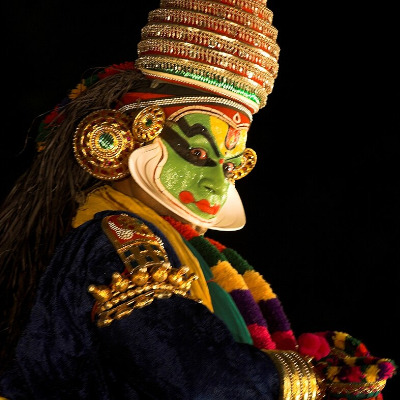



Aesthetic of the languages on earth : Malayalam Malayalam is Dravidian language spoken by 37 million people over Kerala and southern India. It's an official language of the state of Kerala, Lakshadweep and Mahé in India.
54 notes
·
View notes
Text
candy
late 13c., "crystallized sugar," from Old French çucre candi "sugar candy," ultimately from Arabic qandi, from Persian qand "cane sugar," probably from Sanskrit khanda "piece (of sugar)," perhaps from Dravidian (compare Tamil kantu "candy," kattu "to harden, condense").
39 notes
·
View notes
Text
everyone's heard of the south indians having reactions of visceral loathing when it comes to hindi stereotype but y'all forget about the most dramatic mfs out there when it comes to hating on hindi and hindi centricism

bangalis
#liveblogging.pdf#it's hilarious to me because they are 100% bigger haters than us so much of the time#even though bangla has at least some similarity to hindi unlike dravidian languages#but then again tamil people don't have to hear people attempt to butcher their language by accentuating all the o's so i mean. fair enough#desiblr#bengali#bangla
37 notes
·
View notes
Text
Quite unjust if I don't write anything in my mother tongue. So here's a thought:
സ്നേഹം കാണിക്കാനുള്ളതാണ് ഒളിപ്പിക്കാനുള്ളതല്ല
Transliteration: (Sneham kaanikkaanulladhaan olippikkanulladhalla)
Roughly translated means:
"Love is something that's to be shown, not to be kept hidden!"
Random Xpressions
11 notes
·
View notes
Text
me: i should get to a higher level of german before starting another language... also me 3 minutes later: but arabic and tamil are so pretty.......
#linguistics#language#learning languages#i cant get enough of learning a new language#and i find middle eastern language so pretty#and the dravidian languages...#tamil#arabic
3 notes
·
View notes
Text
Dreaming of Words [documentary]
This documentary is about Njattyela Sreedharan, a school dropout who compiled a dictionary connecting four major Dravidian languages. Travelling across four states and doing extensive research, he spent twenty five years making the multilingual dictionary. The dictionary offers a comparative study of Malayalam, Kannada, Tamil and Telugu. 'Dreaming of Words' traces Sreedharan's life, work, love for languages and the struggles to get the dictionary published. The film also explores the linguistic and cultural diversity in India.
youtube
trailer: Dreaming of Words (with English subtitles) | Official Trailer - YouTube
full movie: Dreaming of Words (with English subtitles) | Full Documentary - YouTube
15 notes
·
View notes
Text
Also my Malayalam knowledge is absolutely not good at all but I could actually figure out a lot of what was going on in conversations around me sdfhjsdfhksjdf also the fact that I do know some amount of Malayalam was perhaps hammered home more by the fact that when we got to Mumbai and everyone was talking in Hindi I really truly could not understand anything
#this is the first time i've been in a part of india where they don't speak a dravidian language sdfhsjdfhjkhsdf#my family in mumbai was like you should come and visit again for longer than two hours and i was like hmmm we'll see#kerala was so so nice i really just only want to go back there#idk if i'd even want to go back to chennai or bangalore or anything shdfjshdf#perce rambles
2 notes
·
View notes
Text
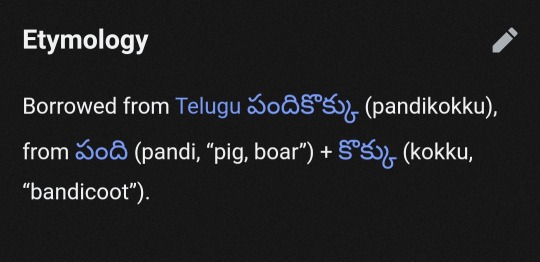
what do they mean borrowed, are they going to give it back?
2 notes
·
View notes
Text
Numbers in some languages of Dravidian or Numbers in some languages of Dravidian languages.
#languages, #dravidian, #tamil, #malayalam, #kannada, #telugu.
0 notes
Text
figured out a name for my character's ex-boyfriend who doesn't show up until the last fourth of the story i havent started typing up yet, so, yeah, writing's going well
#its actually really cute im very pleased with myself lol#i'm pulling linguistically from the dravidian languages for names in this specific group#which means (long story short) i needed specifically a malayam name or word that started with an E sound and was three syllables long#like a very specific puzzle to figure out when a lot of the resources are translations between different indian/south indian sources#and i'd previously added 'Elam' to my possibilities list but its only two syllables so I wanted to keep searching#but then I found another form of the word that is 'Elakka' which is. it matches the main character Adaka. thats so dang cute#like i wanted them to match a bit thats why i was looking for three syllables but this is too much#adaka is NOT a cute character and then he's going to introduce everyone to his ex who he's very much still in love with#and their names are gonna be matchy-matchy cutesy and im anticipating writing a very funny beat there in the distant future
1 note
·
View note
Text




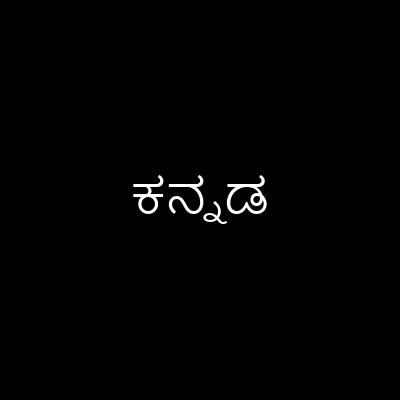
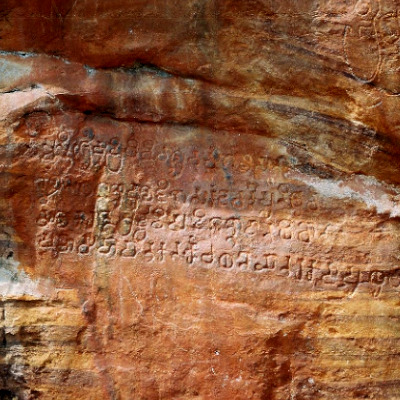


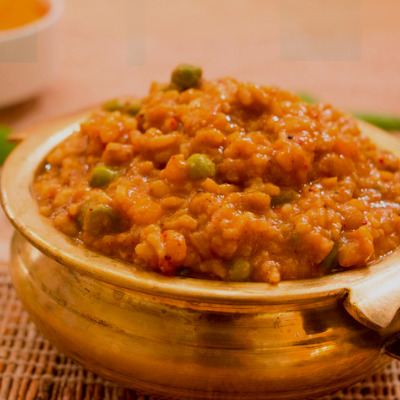
Aesthetic of the languages on earth : Kannada
Kannada is a Dravidian language spoken by 43.7 million people over the Karnataka region of India. It is an official language of Karnataka.
89 notes
·
View notes
Text
black
kar: Tamil
kariya: Tulu
karu: Telugu
karuppu: Malayalam
kari: Brahui, Telugu, Gondi,
kolu: Kashmiri
kala: Hindi/Urdu, Bengali, Punjabi, Marathi
kalo: Romani, Bengali, Nepali, Konkani
kola: Assamese, Odia
kalu: Dhivehi, Sinhalese
kaola: Bengali
16 notes
·
View notes
Text
raj/a etymology
The etymology of the word "raja" is a subject of debate among linguists and scholars, and there are differing opinions regarding its origin.
Some scholars believe that the word "raja" is of Dravidian origin, and that it has been borrowed into Sanskrit. For example, the Dravidian Etymological Dictionary by T. Burrow and M.B. Emeneau suggests that the word "raja" may have originated from the Dravidian root word "aracu", meaning "to rule" or "to control". They propose that this root word was borrowed into Sanskrit and developed into the word "raja".
Other scholars, however, believe that the word "raja" has its origins in Sanskrit, and that it was borrowed into the Dravidian languages. For example, the Sanskrit-English Dictionary by Monier Monier-Williams suggests that the word "raja" is derived from the Sanskrit root word "raj", meaning "to reign" or "to rule". They propose that this root word was borrowed into the Dravidian languages and developed into the word "raja".
The Sanskrit word "Raj" (राज) means "rule", "reign", "kingship" or "sovereignty". It is derived from the Proto-Indo-European root *h₃reǵ- which means "to straighten, to direct, to rule". The word "Raj" is found in many Sanskrit words such as "Rajya" (kingdom), "Raja-dharma" (the duties of a king), and "Rajendra" (lord of kings). It is also the root of many common Indian names such as Rajesh, Rajiv, and Rajendra.
Ancient Greek: the verb ὀρθό�� (orthóō) meaning "to make straight, to correct, to set right" and the noun ὀρθρός (orthros) meaning "straight, upright, correct” -- not “rule”, “reign”, or “kingship”
#raj#raja#arasu#king#chief#ruler#etymology#linguistics#language#history#ancient history#south asia#indus valley#tamil#sanskrit#vedas#dravidian
0 notes
Text
lbffr, english is an outlier on this site adn should not be counted. so.
Do not vote if your first language is English!!!
If you have multiple first languages, please choose to vote for the one that is not English OR the one that you think will have the least votes!
I am aware that Indo-European is still going to win but I do hope the results will be a little less skewed!
And no, I will not give you a "see results" button <3
#. it hurts me in my heart that i can't have 300 options for ''all'' language families#polls#langblr#lingblr#language#l#r.poll
691 notes
·
View notes
Text
Irish spelling makes anything English or French could come up with look simple. The various changes are supposed to reflect the changes in pronunciation, but they didn't go with obvious-to-an-outsider spellings and also if you're not a native/fluent speaker you have no idea when the pronunciation is supposed to change so it's basically an added layer of complexity.
I always feel like, "English is so difficult" is just monolinguals trying to feel special, like their language is as hard as walking to school uphill both ways in a snowstorm. Because firstly, every language is equally difficult/easy for babies to learn as a first language (citation: graduate level language development courses). Secondly, lots of languages have messed up writing/spelling systems. And thirdly, learning a language as an adult depends on your first language and the level of similarity. As in, if you know English, Dutch and German (same root) and French (shared vocabulary) are easier to learn as an adult. They have whole language root maps that show you:

The more you learn about other languages, you'll realize they are just as weird as English. Hard to spell stuff in this language? Well according to my colleague who speaks Farsi, they have 4 "z"s, 3 "s"s, and two "t"s that make no sound differences and have to be memorized for spelling because they came from Arabic (citation needed, but the Google seems to back this up). Japanese has three different alphabets. French, Swedish, Faroese, Tibetan, Mongolian and Hebrew also have "deep orthographies" meaning that the relationship between letters and their sounds is less direct than we wish (which may cause a higher incidence of dyslexia), just like English.
English isn't some special language that's so difficult to learn. If it was, I really doubt there would be 750 million second language speakers worldwide. And this isn't just coming from a random internet person, Stephan Pinker, a linguist, has a whole chapter in one of his books about how English grammar is surprisingly regular and we keep making it more regular (eliminating exceptions like "learnt" for "learned") and it's not as weird as people make it out to be.
And yes, I'm aware most people learn English as a second language for economic reasons/colonization/imperialism, but if it was really that hard people would give up. It's just regular hard. Languages are all hard and they all have weirdnesses and histories and English isn't special it's just another language among thousands.
#language#my one complaint about the map is that Afro-Asiatic and Dravidian are nearly the same color
115 notes
·
View notes